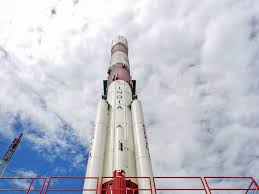India’s space agency plans to build an additional fab at Semiconductor Laboratory (SCL), its chip-making facility in Chandigarh, in a bid to scale up capacity to meet the growing demand for chipsets for rockets and satellites as it opens up the space sector to private firms and startups.
The move by the Indian Space Research Organisation (ISRO) comes at a time when the government is looking to encourage global companies to set up semiconductor fabs to tap the local market.
India is poised to increase its share in the global manufacturing of mobile phones, IT hardware, automotive electronics, industrial electronics, medical electronics, Internet of Things, and other devices soon as it aspires to set up $400 billion worth of electronics manufacturing by 2025, the government said in its latest call seeking expressions of interest to set up fabs.
SCL has a 180-nanometre facility that produces chips for strategic purposes. SCL and the Semiconductor Technology and Applied Research Centre (SITAR) in Bengaluru, which has a 100-nanometre unit, also make micro-electrical mechanical systems (MeMs) and sensors that have applications in critical areas. SITAR also runs a Gallium Arsenide Enabling Technology Centre (GAETEC) in Hyderabad.
“There is a need to increase the localization of components and chipsets. The plan is to reduce imports and increase indigenization,” an ISRO official said. ISRO has built homegrown capacity to build chips with 65-nanometre technology. ISRO’s success in building the Vikram processor, crucial for navigation and guidance control of its rockets, besides its collaboration with IITs to build homegrown chips for Navic receivers that will increase the accuracy of navigation across remote corners of the country, will spur demand for mass manufacturing, he added.
RELIANCE 1,251.50 -0.95 (-0.08%)  TCS 3,550.45 +0.10 (0.00%)
TCS 3,550.45 +0.10 (0.00%)  ITC 408.40 +1.75 (0.43%)
ITC 408.40 +1.75 (0.43%)  HDFCBANK 1,791.30 +24.00 (1.36%)
HDFCBANK 1,791.30 +24.00 (1.36%)  HINDUNILVR 2,235.00 +1.35 (0.06%)
HINDUNILVR 2,235.00 +1.35 (0.06%)  INFY 1,551.00 +23.50 (1.54%)
INFY 1,551.00 +23.50 (1.54%)  HDFC 2,729.95 -17.05 (-0.62%)
HDFC 2,729.95 -17.05 (-0.62%)  BHARTIARTL 1,746.80 +22.90 (1.33%)
BHARTIARTL 1,746.80 +22.90 (1.33%)  KOTAKBANK 2,142.50 -2.75 (-0.13%)
KOTAKBANK 2,142.50 -2.75 (-0.13%)  BAJFINANCE 8,688.60 -8.30 (-0.10%)
BAJFINANCE 8,688.60 -8.30 (-0.10%)  ICICIBANK 1,329.50 +11.90 (0.90%)
ICICIBANK 1,329.50 +11.90 (0.90%)  MARUTI 11,683.35 +207.80 (1.81%)
MARUTI 11,683.35 +207.80 (1.81%)  HCLTECH 1,527.35 -2.10 (-0.14%)
HCLTECH 1,527.35 -2.10 (-0.14%)  SBIN 774.60 +3.10 (0.40%)
SBIN 774.60 +3.10 (0.40%)  NESTLEIND 2,207.80 -24.30 (-1.09%)
NESTLEIND 2,207.80 -24.30 (-1.09%)  ASIANPAINT 2,305.00 -10.40 (-0.45%)
ASIANPAINT 2,305.00 -10.40 (-0.45%)  WIPRO 264.95 +2.30 (0.88%)
WIPRO 264.95 +2.30 (0.88%)  DMART 4,054.00 +49.85 (1.24%)
DMART 4,054.00 +49.85 (1.24%)  AXISBANK 1,087.95 +2.60 (0.24%)
AXISBANK 1,087.95 +2.60 (0.24%)  LT 3,430.05 -5.80 (-0.17%)
LT 3,430.05 -5.80 (-0.17%)  HDFCLIFE 694.75 +1.65 (0.24%)
HDFCLIFE 694.75 +1.65 (0.24%)  SUNPHARMA 1,713.95 +17.00 (1.00%)
SUNPHARMA 1,713.95 +17.00 (1.00%)  ULTRACEMCO 11,237.50 -138.85 (-1.22%)
ULTRACEMCO 11,237.50 -138.85 (-1.22%)  ONGC 250.80 +2.65 (1.07%)
ONGC 250.80 +2.65 (1.07%)  BAJAJFINSV 1,941.45 +4.95 (0.26%)
BAJAJFINSV 1,941.45 +4.95 (0.26%)  BPCL 283.80 -1.00 (-0.35%)
BPCL 283.80 -1.00 (-0.35%)  POWERGRID 287.05 -2.20 (-0.76%)
POWERGRID 287.05 -2.20 (-0.76%)  TITAN 3,048.50 +62.00 (2.08%)
TITAN 3,048.50 +62.00 (2.08%)  BRITANNIA 4,960.35 +60.65 (1.24%)
BRITANNIA 4,960.35 +60.65 (1.24%)  NTPC 349.10 -3.05 (-0.87%)
NTPC 349.10 -3.05 (-0.87%) 
 TCS 3,550.45 +0.10 (0.00%)
TCS 3,550.45 +0.10 (0.00%)  ITC 408.40 +1.75 (0.43%)
ITC 408.40 +1.75 (0.43%)  HDFCBANK 1,791.30 +24.00 (1.36%)
HDFCBANK 1,791.30 +24.00 (1.36%)  HINDUNILVR 2,235.00 +1.35 (0.06%)
HINDUNILVR 2,235.00 +1.35 (0.06%)  INFY 1,551.00 +23.50 (1.54%)
INFY 1,551.00 +23.50 (1.54%)  HDFC 2,729.95 -17.05 (-0.62%)
HDFC 2,729.95 -17.05 (-0.62%)  BHARTIARTL 1,746.80 +22.90 (1.33%)
BHARTIARTL 1,746.80 +22.90 (1.33%)  KOTAKBANK 2,142.50 -2.75 (-0.13%)
KOTAKBANK 2,142.50 -2.75 (-0.13%)  BAJFINANCE 8,688.60 -8.30 (-0.10%)
BAJFINANCE 8,688.60 -8.30 (-0.10%)  ICICIBANK 1,329.50 +11.90 (0.90%)
ICICIBANK 1,329.50 +11.90 (0.90%)  MARUTI 11,683.35 +207.80 (1.81%)
MARUTI 11,683.35 +207.80 (1.81%)  HCLTECH 1,527.35 -2.10 (-0.14%)
HCLTECH 1,527.35 -2.10 (-0.14%)  SBIN 774.60 +3.10 (0.40%)
SBIN 774.60 +3.10 (0.40%)  NESTLEIND 2,207.80 -24.30 (-1.09%)
NESTLEIND 2,207.80 -24.30 (-1.09%)  ASIANPAINT 2,305.00 -10.40 (-0.45%)
ASIANPAINT 2,305.00 -10.40 (-0.45%)  WIPRO 264.95 +2.30 (0.88%)
WIPRO 264.95 +2.30 (0.88%)  DMART 4,054.00 +49.85 (1.24%)
DMART 4,054.00 +49.85 (1.24%)  AXISBANK 1,087.95 +2.60 (0.24%)
AXISBANK 1,087.95 +2.60 (0.24%)  LT 3,430.05 -5.80 (-0.17%)
LT 3,430.05 -5.80 (-0.17%)  HDFCLIFE 694.75 +1.65 (0.24%)
HDFCLIFE 694.75 +1.65 (0.24%)  SUNPHARMA 1,713.95 +17.00 (1.00%)
SUNPHARMA 1,713.95 +17.00 (1.00%)  ULTRACEMCO 11,237.50 -138.85 (-1.22%)
ULTRACEMCO 11,237.50 -138.85 (-1.22%)  ONGC 250.80 +2.65 (1.07%)
ONGC 250.80 +2.65 (1.07%)  BAJAJFINSV 1,941.45 +4.95 (0.26%)
BAJAJFINSV 1,941.45 +4.95 (0.26%)  BPCL 283.80 -1.00 (-0.35%)
BPCL 283.80 -1.00 (-0.35%)  POWERGRID 287.05 -2.20 (-0.76%)
POWERGRID 287.05 -2.20 (-0.76%)  TITAN 3,048.50 +62.00 (2.08%)
TITAN 3,048.50 +62.00 (2.08%)  BRITANNIA 4,960.35 +60.65 (1.24%)
BRITANNIA 4,960.35 +60.65 (1.24%)  NTPC 349.10 -3.05 (-0.87%)
NTPC 349.10 -3.05 (-0.87%) 




